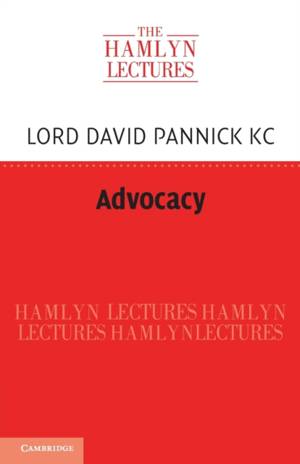
- Afhalen na 1 uur in een winkel met voorraad
- Gratis thuislevering in België vanaf € 30
- Ruim aanbod met 7 miljoen producten
- Afhalen na 1 uur in een winkel met voorraad
- Gratis thuislevering in België vanaf € 30
- Ruim aanbod met 7 miljoen producten
Zoeken
Omschrijving
Lord Pannick celebrates advocacy: that controversial legal issues are decided in court after reasoned argument in which the participants refrain (usually) from shouting, personal insults or threats, and the points on each side of the debate are tested for their relevance, their accuracy, and their strength. The book seeks to identify the central characteristics of good and bad advocacy with the aid of examples from courtrooms in the UK and abroad. Lord Pannick also examines the morality of advocacy - that the advocate sets out views to which he does not necessarily subscribe, on behalf of clients for whom she may feel admiration, indifference, or contempt. Lord Pannick seeks to answer the question he is often asked - more by friends than by judges - 'How can you act for such terrible people?'. Finally, he addresses the future of advocacy, arguing it should and will survive pressures for efficiency and technological developments.
Specificaties
Betrokkenen
- Auteur(s):
- Uitgeverij:
Inhoud
- Aantal bladzijden:
- 208
- Taal:
- Engels
- Reeks:
Eigenschappen
- Productcode (EAN):
- 9781009338110
- Verschijningsdatum:
- 11/05/2023
- Uitvoering:
- Paperback
- Formaat:
- Trade paperback (VS)
- Afmetingen:
- 140 mm x 216 mm
- Gewicht:
- 249 g

Alleen bij Standaard Boekhandel
+ 59 punten op je klantenkaart van Standaard Boekhandel
Beoordelingen
We publiceren alleen reviews die voldoen aan de voorwaarden voor reviews. Bekijk onze voorwaarden voor reviews.











